Top tips for travelling from the Pod Volunteer team!
Volunteering & Travel Advice / 14 January 2019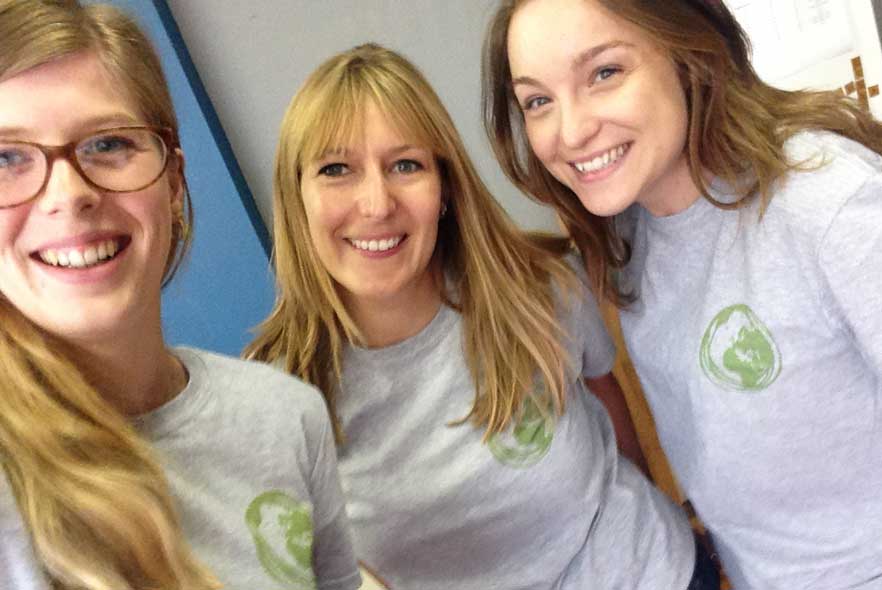
A handy Top Tips guide from the lovely Pod Volunteer team!
TOP TIPS ON WHAT TO PACK?
Gemma: A little edible luxury from home for the times you feel a little homesick (although remember chocolate doesn’t do very well in the heat!). An international travel adapter is really useful in your hand luggage so that you can easily charge your phone/kindle if you are at an airport stop over for many hours.
Bee: I wouldn’t be without my trusty head torch and some plasters! You never know how reliable electricity supplies will be when you’re travelling and a head torch means I’m never caught short in the middle of the night. Plasters are always a must for me too as I love to get out and about, exploring as much as possible and refuse to let any blisters get the better of me!
Iona: I always like to pack a sarong when I am travelling to countries with a humid climate and temples! They are a lightweight item you can use to cover your shoulders when visiting religious areas, can be used as a makeshift blanket if you need a nap, a cover up on the beach or even a pillow on those long bus rides. I also always like to bring ear plugs and an eye mask for sleeping so that, no matter how busy my room is, I can get a decent night’s sleep!
Lucy: I ensure I have a portable charger wherever I go as a backup in case I am unable to charge my phone for a while! You don’t want to be stuck charging your camera / phone when there is lots of exploring to be done. Another essential item is a micro-fibre travel towel, as they dry amazingly fast and are lightweight. However, be careful not to over pack, a heavy rucksack can be wearing very quickly!
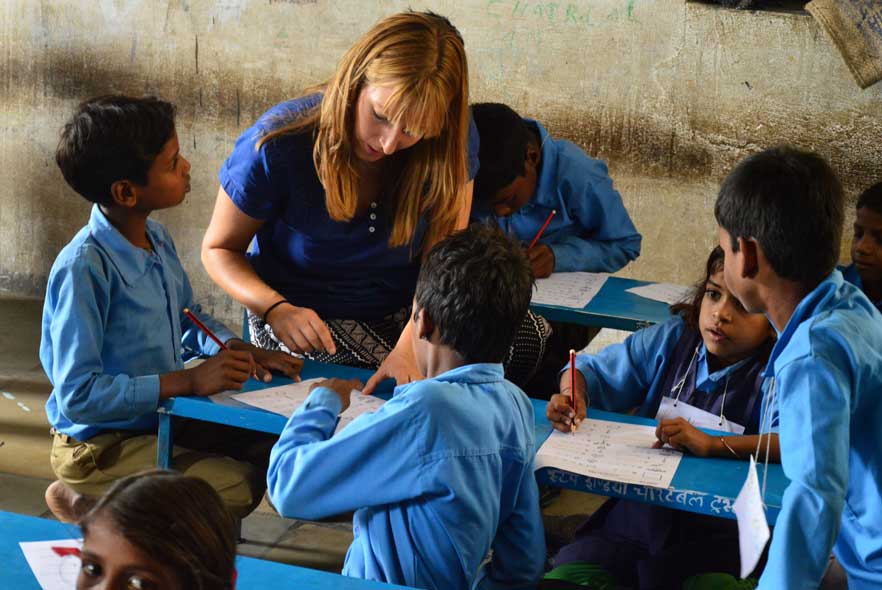
TOP TIPS FOR KEEPING SAFE ABROAD?
Bee: Getting orientated and working your routes out in the daylight means you know where you are if you find yourself out after dark. If you know you’ll be using taxis to get about, or want to check the best bus lines to use ask at your accommodation for local and trusted numbers before you head out for the day.
Lucy: When you are travelling, take a money belt and wear it under your top. I use this to store my passport, a couple of cards and some cash, so that if my bag was stolen I don’t lose the most vital items!
Gemma: Do not keep all your cash and cards in one place!
Iona: I think just generally being aware of your surroundings and always being a little cautious when you are visiting somewhere new – as Bee mentioned, having an idea of your environment (and any distinct markers you would recognise!) so you know how to get back in the dark is really important. It’s good to check out the FCO travel advice for a country before you visit – this has the latest updates on any important information you might need to consider when travelling abroad.
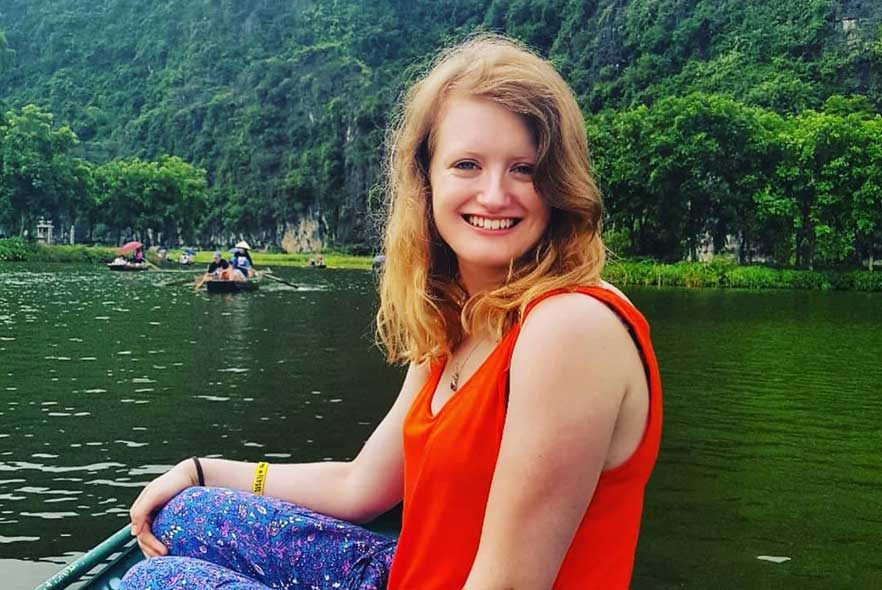
WHAT ARE THE ADVANTAGES FOR YOU OF TRAVELLING ALONE?
Lucy: There are many! Travelling alone means you can do exactly what you want to do, without needing to compromise. I have found that as a solo traveller, others are more likely to strike up a conversation with you – this is how I have made great friends who I would not otherwise have met.
Gemma: When you travel alone it’s a great opportunity to meet new people and challenge yourself. Plus you will feel so proud that you did it when you get back, if you don’t try then you will never know if you are able to.
Bee: It’s so much easier to make friends when you’re travelling alone! It means you have to talk to people and really immerse yourself in your environment. Chatting to local people means you often get great travel tips that other people will miss out on and talking to other travellers can lead to more adventures with great new friends too!
Iona: It really encourages you to put yourself out there! It can seem like a daunting task to approach a group of strangers but when you are on your own, you get used to introducing yourself and soon learn that a lot of people are in the same boat. It also means that you might spend time with people you wouldn’t usually have the opportunity of meeting and you tend to form really strong friendships. Just remember, others are usually really grateful if you are the first person to strike up conversation!
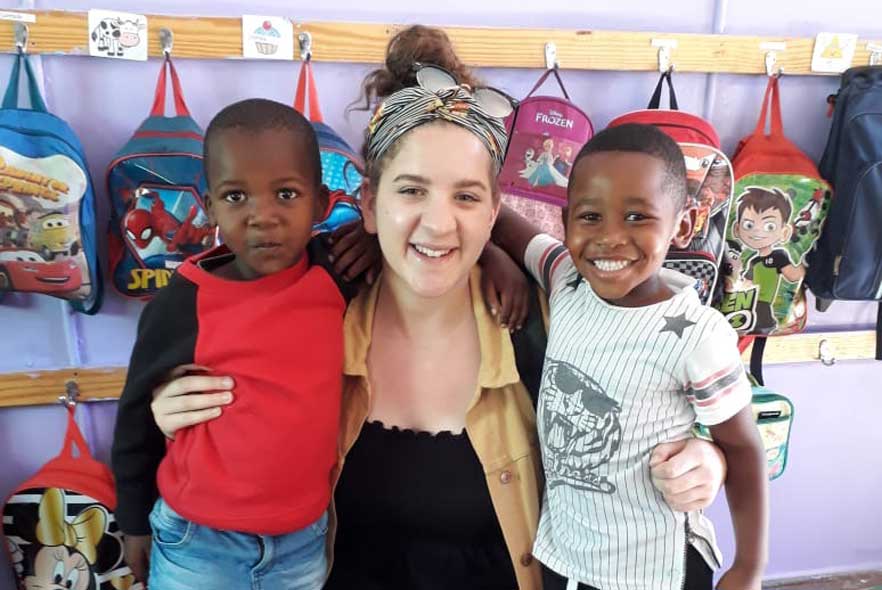
TOP TIPS FOR COPING WITH JET LAG?
Gemma: When you get off your flight at your final destination it’s best to eat at your new locations meal times and go to bed at your destinations normal bed time (even if it is a struggle to stay awake all day/go to sleep at first!). This really helps your body adapt and adjust to your new daily clock.
Iona: Push through! Even if you are half asleep and dragging yourself to get some food, your future self will thank you. I have made the rookie error of giving in to my need for sleep and my body clock took days to recover after that!
Lucy: For the first few days, try to keep to a routine and wake up at the same time every day, as this will force your sleeping pattern to adjust to the new time zone.
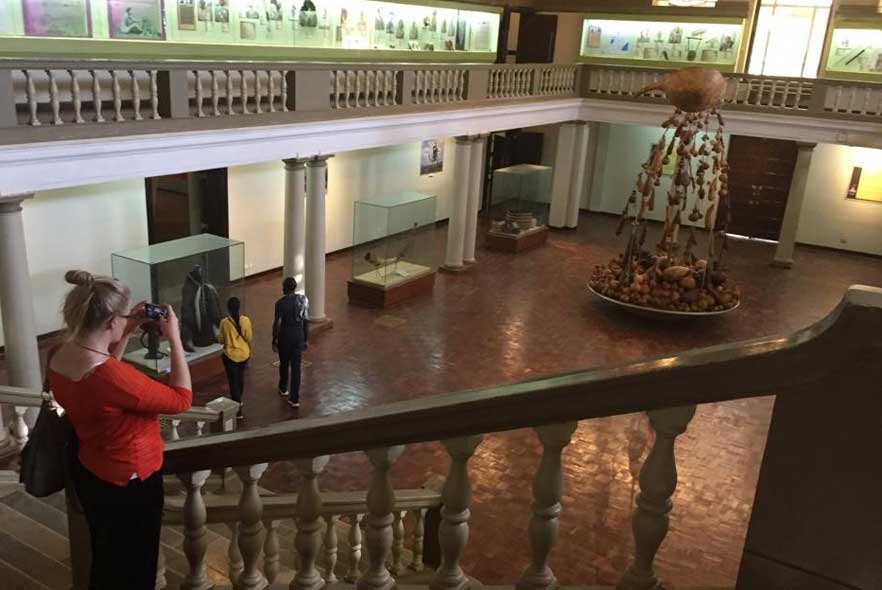
TOP TIPS FOR NOT BEING RIPPED OFF ABROAD?
Gemma: Before you arrive in a new destination write down the how much your local money is worth so you can quickly check how much your new purchase converts as! It’s really useful to take this note of conversion amounts with you during your first week so you check how much the taxi journey is or how much the water is.
Lucy: Following on from Gemma’s point, I would recommend doing your research on how much things will cost. It is good to have an idea of what you should expect to spend on activities, meals, taxis etc. and gently haggle if you are charged more than this!
Bee: Smiling, being polite and courteous can go a long way if you’re trying to get a good price for something and learning a bit of the local language is also part of this! People are much more likely to give you a nice price if you are able to show them that you are making an effort. Take time to chat to vendors – it helps establish a relationship and makes haggling more fun and relaxed too!
Iona: I swear by the XE Currency Converter app on my phone for when I first arrive into a new country. It doesn’t require internet and you can quickly use it to make sure you are not being charged too much. After a couple of days, I get a better idea of the exchange rate and don’t need to use it.
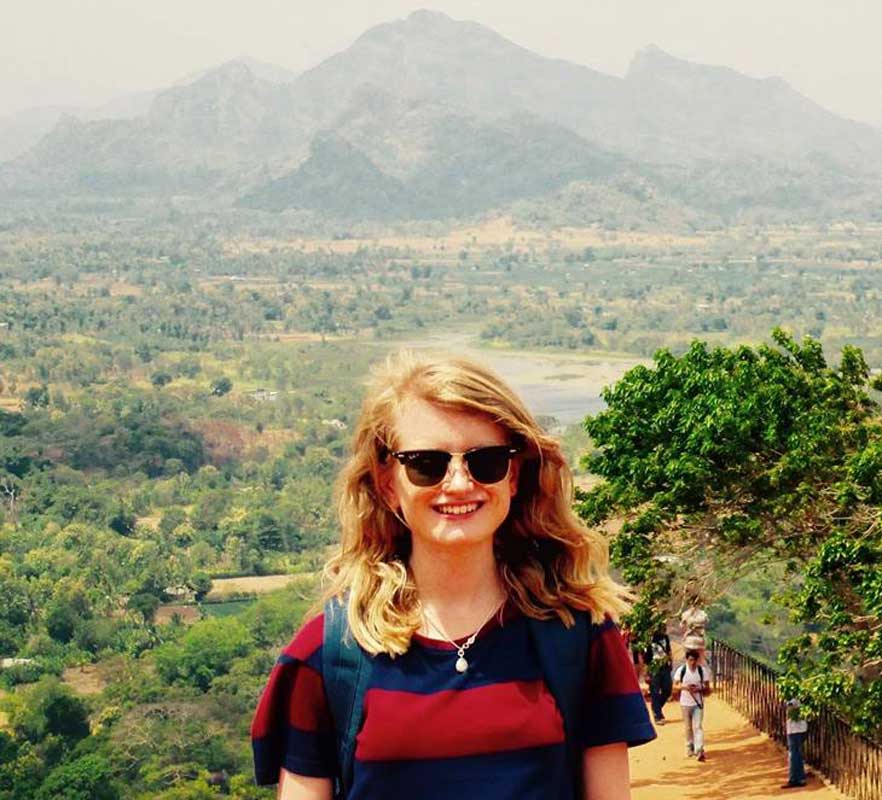
TOP TIPS FOR IMMERSING IN THE LOCAL CULTURE?
Bee: Throw yourself in and talk to people! You will find that people want to welcome you – especially if you can speak a little bit of the language! It’s great to take a couple of family photos with you too – it doesn’t matter where in the world you are, everyone loves to have a nosy at how much you look like your family and it makes a great ice breaker to learn more about theirs too.
Gemma: Talk to the local staff at your volunteer project and ask them many questions to learn more about their culture.
Iona: Talking really is key! Meeting the people who keep our projects operating is a pretty unique experience and getting to know them and how they ended up in this role is always fascinating; you soon realise that the similarities far outweigh the differences.
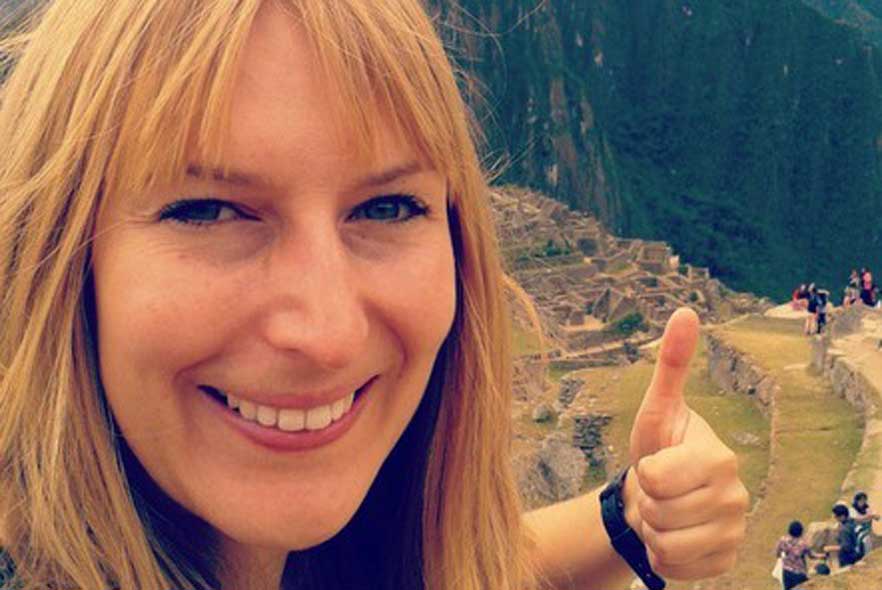
TOP TIPS FOR TRAVELLING ON A BUDGET?
Gemma: Rather than buying new plastic bottles of water, treat your own water using special travel water treatments.
Bee: Instead of taking expensive taxis, ask around for the best public transport options to use and try these instead. They’re usually much cheaper and you get to experience more of everyday life in the country. You might even take home a good story or two about chickens on minibuses too.
Iona: It depends on what you want to get out of your travelling experience! If you are going to be travelling after a volunteering placement, it is always considerably cheaper to stay at hostels (and even cheaper if you stay in a large mixed-dorm). While you may not be guaranteed your best night’s sleep, you are far more likely to meet fellow travellers and make plenty of friends to join you on your adventures.
Lucy: Try to eat at local restaurants rather than those geared solely for tourists. As a rule of thumb any restaurant with a menu in multiple languages is used predominantly for tourists and will be therefore considerably more expensive!
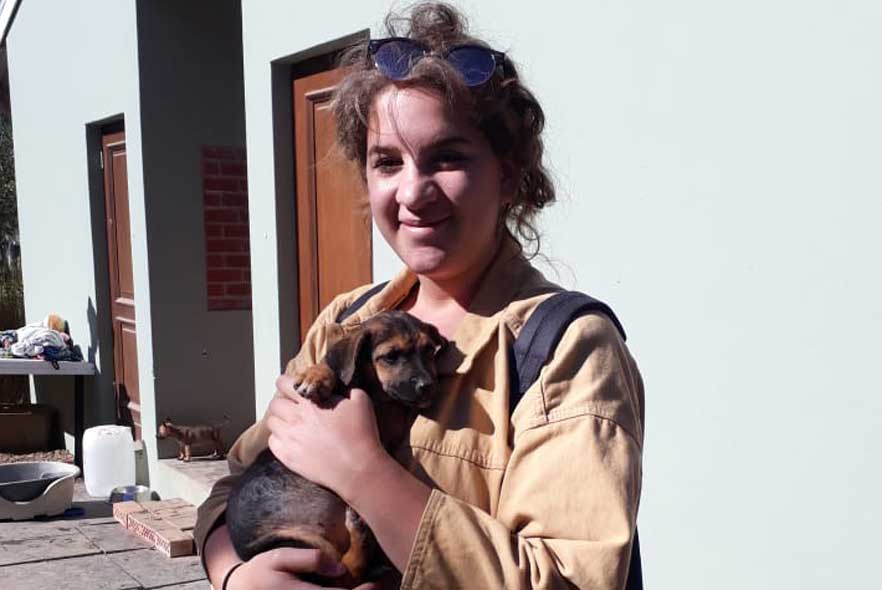
TOP TIPS FOR COPING WITH THE HEAT?
Gemma: Drink lots of water, as you will be sweating much more than normal you will be amazed how much you need to drink to keep hydrated and avoid heat stroke. I prefer to limit the time I spend in very cold air con since the shock of going from the hot to cold can make it hard for the body to regulate it.
Bee: Baggy clothes are best! Loose fitting clothes can help keep the sun off your skin and still mean you can get a good breeze too. Don’t try and cram in too many activities from the moment you land either. Take things at a slower pace for the first day or two whilst you’re settling in and you’ll soon find yourself adjusting to the heat.
Lucy: Try to stay in the shade where possible, particularly between 12 noon and 3pm when the sun is at its strongest! It is important to be consistently drinking water, don’t wait until you’re dehydrated to start drinking.
Iona: It is really important to pack sunscreen (and wear it!). I always have to start with at least factor 30, especially if I am leaving a particularly cold and sunshine-free UK behind! I also always pack lots of headbands to keep my hair up and out of the way (and bring in my own sense of style too). If you are volunteering in quite a physical role, it is great for keeping a bit cooler.
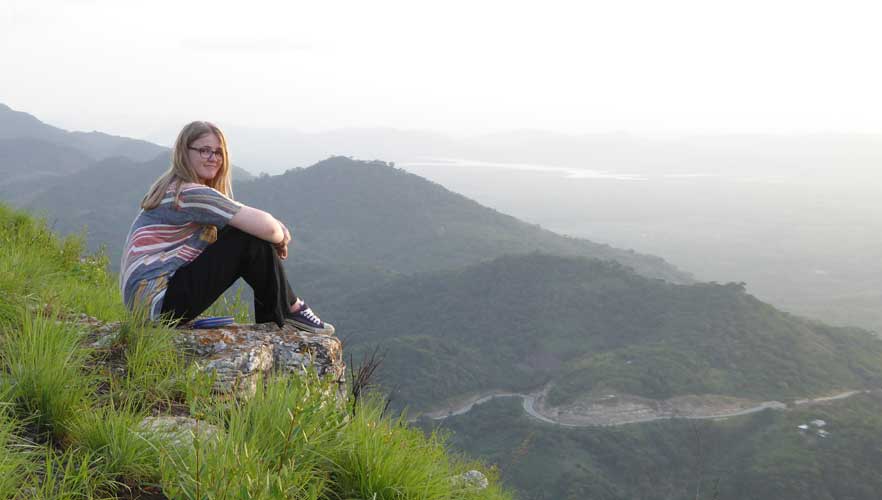
TOP TIPS FOR TRAVELLING RESPONSIBLY AND ETHICALLY?
Gemma: My top 3 tips for responsible travel are:
1. Support local shops and people as much as possible to help support the local businesses and their families, and don’t bargain too hard - an extra 10p won’t mean much to you but means a lot more to them! If possible try and buy your souvenirs from a fair trade or women’s community tourist shop.
2. Try to limit the amount of waste plastic that you make by using a reusable bottle and a reusable shopping bag rather than plastic bags.
3. Make sure that you wear clothes that are culturally appropriate. Showing too much leg or your shoulders in certain areas (especially religious buildings) will make you get unwanted attention and people will respect you more for respecting their traditions and culture.
Bee: Doing a bit of research before you go about local customs and cultures is always worth the effort. You don’t want to find out too late that waving with your left hand is offensive or that the shorts you brought with you will have to spend the whole trip in your bag! It’s also important to make sure you ask before taking photos of anyone. Everyone has days when they don’t want a camera in their face – but in some parts of the world it goes deeper than that as taking a picture is believed to steal a part of your soul. Be sure to take any rubbish away with you too – the age old expression ‘take nothing but photos, leave nothing but footprints’ may be a bit tired, but it’s still one I try and live by!
Iona: Take the time to find out more about the country and culture you are going to be visiting - it doesn’t take too long to do and always makes me even more excited for an upcoming trip! It is so important to remember that you are a guest in the country and so should treat it with respect – this ranges from buying locally to adhering to local customs. One I learnt was to never touch a statue or Thai person on their head as this is considered the most sacred part of the body. Buying and eating locally is a great way to make a positive impact to the economy, as well as meeting local people and enriching your experience even more!
Lucy: Do your research, and consider who you are giving your money to! I try to solely use companies that work with local communities and employ local staff and aim to buy souvenirs from local craftspeople rather than large stores.
We have lots of different blogs with more responsible travel tips too:
- How to reduce your single use plastic whilst travelling
- How to stay secure in hostels and guest houses
- Volunteering with children: Our advice
- Born Free Foundation’s Travellers Animal Alert Initiative
- The Impact of Volunteers
- Top Tips for Giving Responsibly
- Right Tourism: 5 Ways to enjoy animals on holiday without harming them
- What to wear on your volunteer placement
- Top 10 tips for responsible travel







